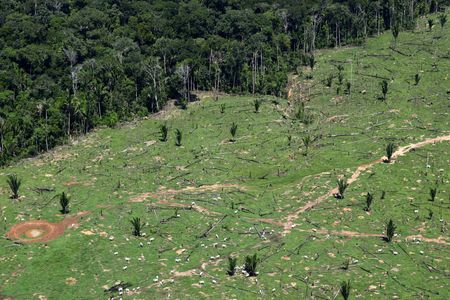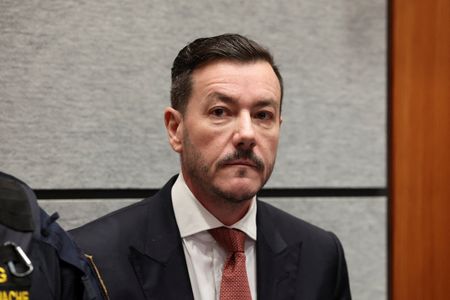By Sharon Kimathi
LONDON (Reuters) -Global investors managing over $3 trillion in assets called on governments on Monday to stop and reverse deforestation and ecosystem degradation by 2030, in a statement signed ahead of a U.N. climate conference in Brazil next month.
Around 30 institutional investors including Swiss private bank Pictet Group and Nordic investor DNB Asset Management have so far signed up to the Belém Investor Statement on Rainforests, which is open until November 1.
A report last week found the world is falling far short of the goal of stopping deforestation, with losses of 8.1 million hectares (20 million acres) of forest – an area about the size of England – in 2024 alone, largely driven by agricultural expansion and forest fires.
“As investors, we are increasingly concerned about the material financial risks that tropical deforestation and nature loss pose to our portfolios,” the statement said.
The investors emphasised the need for policies that deliver legal, regulatory, and financial certainty to help protect the forests and safeguard economic stability, said Jan Erik Saugestad, CEO at Nordic firm Storebrand Asset Management.
“Deforestation undermines the natural systems that global markets rely on – from climate regulation to food and water security.”
Earlier this year, the European Union delayed launching its anti-deforestation law by a year after facing opposition from industry and trade partners such as Brazil, Indonesia and the United States, who say complying with the rules would be costly and hurt their exports to Europe.
The role of climate sceptic U.S. President Donald Trump in rolling back support for global environmental efforts was also hampering action, said Ingrid Tungen, head of deforestation-free markets at Rainforest Foundation Norway.
“I think Trump has made it more difficult for investors and managers to take climate and biodiversity into account in such a volatile market,” she said.
“All the investors that we are talking to think there is a huge risk for us not taking diversification and climate change into consideration in the long-term, and not just for their own morals, but because that will harm the markets directly and their profits directly.”
(Reporting by Sharon Kimathi; Editing by Nia Williams)












